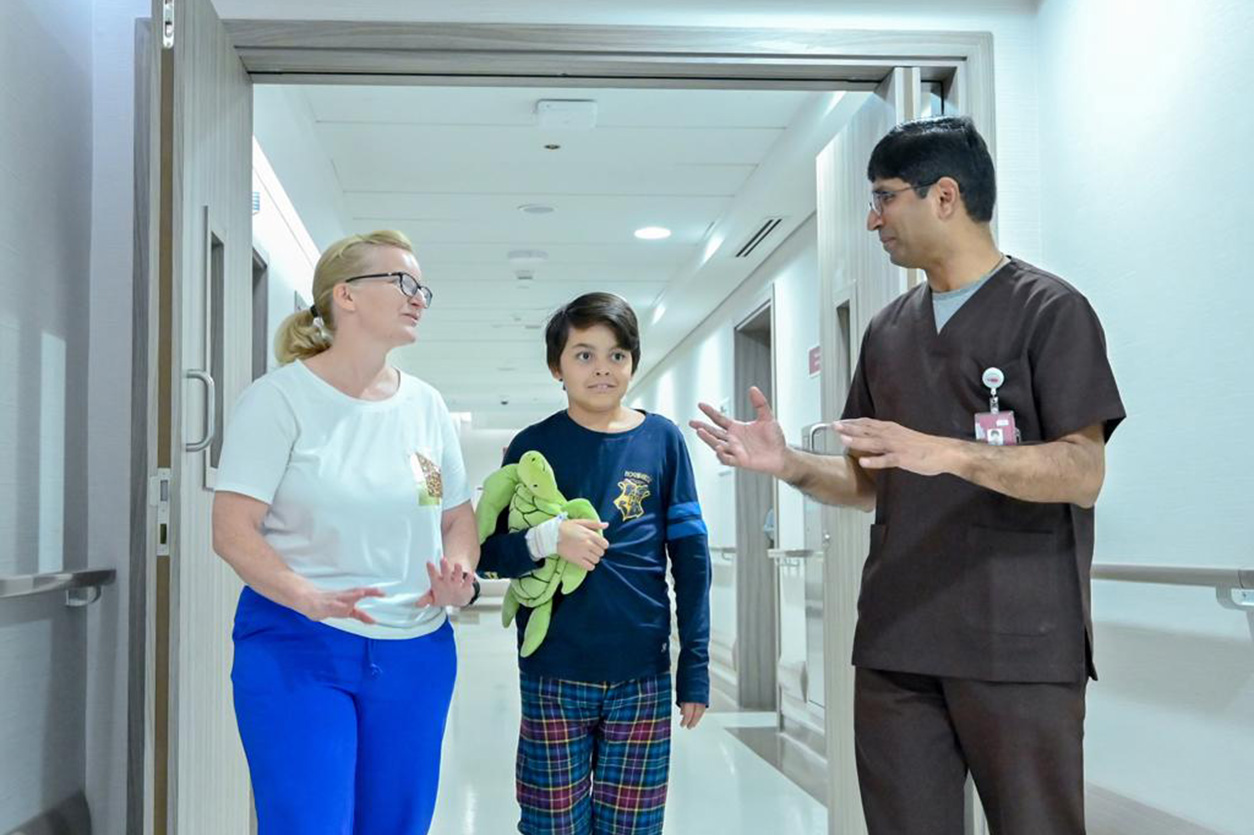Leonardo McGeehan, who had an undiagnosed defect, collapsed while swimming
A quick-thinking mother says she feels “exceptionally lucky” after she helped save her son’s life when his heart stopped while he was swimming in a community pool in Abu Dhabi. Martina McGeehan, 45, who lives in the capital and is from Scotland, raced to the aid of Leonardo, 11, when he collapsed in the water during a family outing. Ms McGeehan pulled her son out of the pool and began to administer CPR, in which she had previous experience. Other community members rallied around and an ambulance was quickly on the scene. Doctors later discovered he had a heart defect called Wolff-Parkinson-White syndrome, which affects between one and three in every 1,000 people and can be fatal. The case has prompted doctors to sound the alarm over the crucial need to undergo check-ups if showing symptoms of the condition, characterised by a pounding heartbeat.
“He was gone,” said Ms McGeehan, a mother of two who was also with her daughter when the incident happened in February.
“This has been one of the most traumatic experiences of my life. It was awful — absolutely horrendous.
“It is a bizarre thing to say but we were lucky. We were lucky that this happened outside where I was surrounded by people to help. Imagine if this happened while he was at home.
“We were lucky because of all the amazing help we got from everyone.”
Heart condition can be a silent killer
Leonardo had a second cardiac arrest at the hospital but has since recovered. He was discharged from hospital two months ago.
“This could have been a completely different story,” Ms McGeechan said.
WPW syndrome causes the heart to suddenly beat abnormally fast for durations which can vary from a matter of seconds to hours or days in exceptional cases. In rare cases, a sufferer’s heart rate can increase at such a rate that it can be life-threatening. Leonardo received further treatment at Burjeel Medical City in Abu Dhabi. Consultant paediatric cardiologist Dr Christopher Duke said it was only the second case of WPW syndrome he had seen which had led to cardiac arrest in his 20-year career.
“Children with this syndrome usually present with palpitations and it is very rare for such patients to suffer a cardiac arrest,” he said.
“We decided to perform a paediatric radiofrequency ablation to treat the condition.”
The procedure uses radiofrequency waves to remove extra tissue in the heart which can cause it to short-circuit.
“Wolff-Parkinson-White syndrome could be the reason why a few adults and children have died of sudden death,” said Dr Duke.
“The electrical abnormality present in those with it can’t be seen after they are dead.”
As well as medical procedures, medication is used to regulate a patient’s heartbeat. The doctor said the condition can be difficult to detect if patients only suffer fleeting and infrequent palpitations. But he urged anyone with concerns to see a doctor, particularly if experiencing more regular symptoms.
“If you have a fast heartbeat that lasts for one second once a year, you are unlikely to go to the doctor,” he said.
“But if you have fast heartbeats for one hour every day, then you will go to the doctor more quickly.”
Read Full Story: TheNationalNews | KhaleejTimes | GulfNews | Wam | GulfToday


